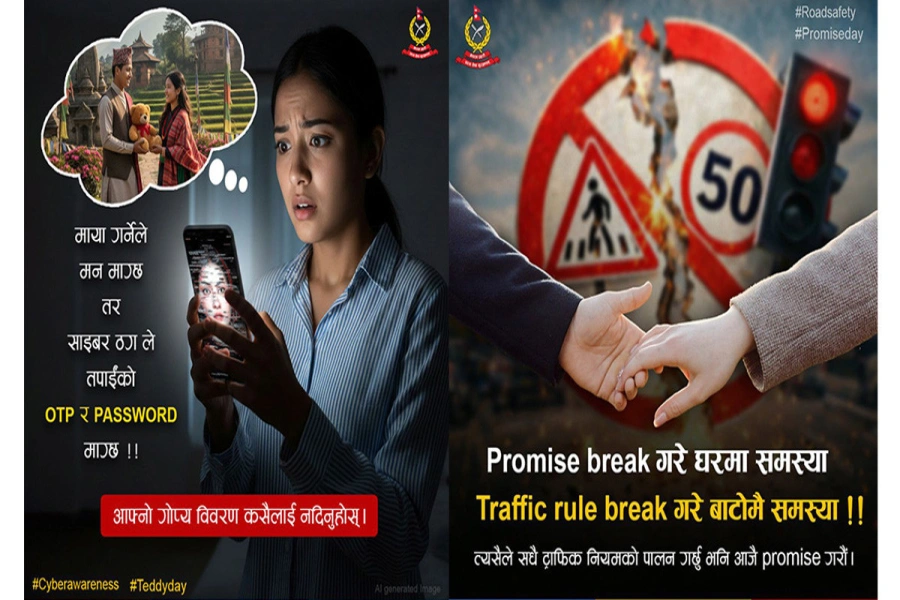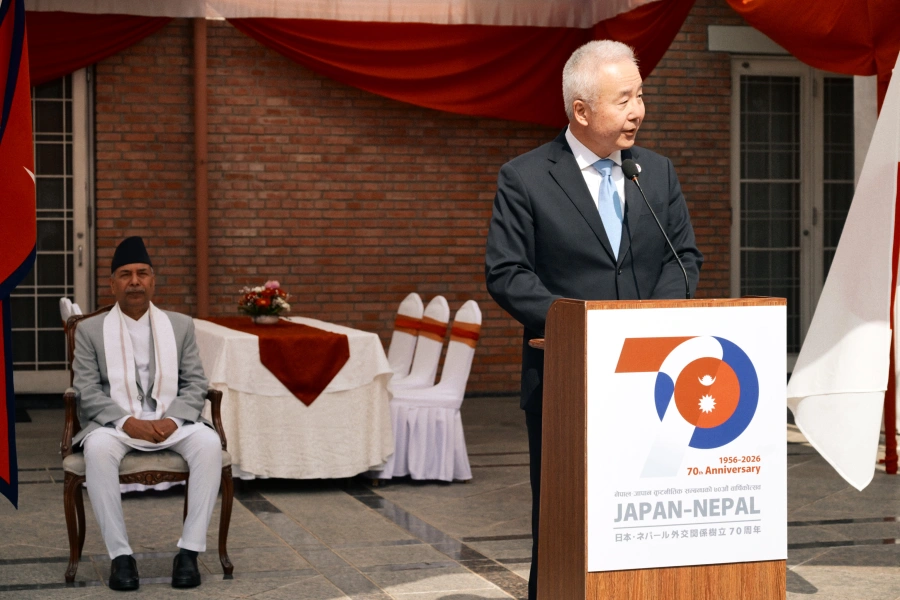Until Congress gets multidimensional, changeable and dynamic actors in leadership position, the party won’t be able to come out of the blind alley
Nepali Congress is in the headlines now because of Mahasamiti Meeting. Mahasamiti is a powerful apex body next to general convention in Nepali Congress. This meeting was important also because it was taking place after the party’s debacle in local, provincial and federal parliament elections last year.
Top leaders were blaming each other for electoral debacle. Meetings of Central Committee and rounds of district presidents’ jamboree had failed to pave the new way for the party. Everyone looked up to Mahasamiti. It was supposed to amend the party’s constitution and pave the new direction for the party. People wanted to know what Congress had to say about national politics and current situation of the country. There was a reason to watch Congress closely.
First, after the constitution promulgation, Congress’ statute had to be reviewed accordingly. But the party leadership was much obsessed with power. Central leadership was least bothered about reinvigorating the party at the grassroots level. Party president Sher Bahadur Deuba was too busy mishandling state machinery and earning criticisms on many fronts. All this led to a sharp decline of Congress hold. The cumulative result was loss in elections.
Greeks used the term hamartia to describe fortune and failings of a hero. Congress lives with this sense of hamartia at the moment and there is no sign of it coming out of this catastrophe. So why is this happening?
Divided house
Congress is divided into multiple factions and each faction is in conflict with the other. Conflict is natural in a democratic party, but conflict in Congress is rather unusual. In a democratic party, when the party loses elections, the party chief takes responsibility for it, but Congress president did not do so. Calls for review, soul-searching and reforms were virtually ignored.
Two arrested while trying to break ATM

President Deuba, who enjoys majority support within the party, believes in technicalities and does not want to abide by democratic norms. His rival Ramchandra Paudel, at the fag end of his political career, seems to be pretty confused for the two highest posts which he aspired for (party president and country’s prime minister) are going further beyond his reach. Deuba has become the party president once and prime minister four times. Paudel is envious of Deuba, but lacks strength to rise at his par.
This precarious situation was long time coming in Nepali Congress. Deuba, Paudel and other dominant leaders are second generation leaders made by the party. First generation leaders had sacrificed much for founding the party and they were much more efficient in managing and holding it together.
Sher Bahadur Deuba and Ramchandra Paudel have invested more than half century of their life for the cause of democracy. After 1990, they enjoyed power several times. Their performance has shown that at this critical juncture, they are incapable of effecting change in the party and safeguarding values of republic. But they are the ones who are holding the whole party system hostage for their vested interests and ego clashes.
The prime reason for calling Mahasamiti was to endorse a new constitution of the party. The central committee had to endorse the constitution before presenting it in the Mahasamiti. The Central Committee failed on this. The infighting became public.
The most trusted lieutenant of President Deuba, assistant general secretary Prakash Sharan Mahat was making noise on the stage as Deuba was beginning to deliver inaugural speech. President had to shout at Mahat not to make noise. This is one example of how unruly and undisciplined the party machinery has become. The four-day meeting had to be extended and the venue shifted to party office premises.
In its 70 years of history, Congress has organized more than a dozen Mahasamiti meetings. All such meetings used to proceed with mass meetings in public. The current Mahasamiti became an exception. The venue preferred for Mahasamiti was a party palace. A large meeting in public place would have gathered much wider audience and large numbers of cadres. It would have helped the party to make its positions public on national issues.
The conflict among rival factions goes on. This is mainly because they can’t think beyond their respective factions. Until Congress gets multidimensional, changeable and dynamic actors in leadership position, the party won’t be able to come out of the blind alley.
Some rays of hope
Leaders in political parties engage in serious disputes sometimes but they reconcile when a respectable figure mediates. Take this case from Indian National Congress. In 1936, leaders like Vallabhbhai Patel, Rajendra Prasad and C Rajagopalachari resigned opposing the actions of party president Jawaharlal Nehru. The dispute reached Mahatma Gandhi. Gandhi wrote a letter to Nehru which reads as follows: “The country should not be made to suffer for your mutual intolerance. I cannot think of myself as rival to Jawaharlal or him to me. If their common goals of achieving Swaraj seem to be taking different routes, the world will find that we had lost sight of each other only for the moment and only to meet again with greater mutual attraction and affection.” With this the dispute was over.
Congress leaders did not seem to be in good terms in the beginning of Mahasamiti meet. Ramchandra Paudel looked unwilling to stand together with Sher Bahadur Deuba and raise his hands in solidarity. But after ten days of the meet the situation changed. Deuba said he was in “deep love’’ with Paudel. The audience responded with cheers.
There was no Nepali Gandhi to bring two leaders together. Youth leaders played a key role in helping them patch up. There was no serious soul-searching among leaders but it has sent a positive message for the moment.
Youth leaders like Chandra Bhandari, Gagan Thapa, Pradip Paudel, Dhanraj Gurung, Guru Raj Ghimire, Jiban Pariyar and Kiran Yadav radiate hope, but their voices are often lost in the noise of dominant factions. Notwithstanding, youth leaders are voicing for change. They have demanded early general convention.
Mahasamiti Meeting got stuck in issue of number of office bearers, but this is not what matters to the public. The precious time was wasted in tug of war about managing the members of respective factions and how to get them on board—through election or nomination.
The party failed to come up with its position on national issues where ruling coalition has despondently failed. Opposition party generates hope among frustrated public in a parliamentary democracy. If Mahasamiti had become a success story, it would have sent a huge positive message to larger public.
Mahasamiti was the right venue to make a statement against dysfunctional communist coalition and sending the hope to the people. It was the right platform for the party to become more assertive. Hopefully, the party will return to its original stature by the time of upcoming general convention. Till then, the only option left is to be hopeful. Whether this hope will materialize will largely depend on how early and how effectively youth leaders establish their issue and themselves.
Meanwhile, Mahasamiti has ended up in a positive note with the commitment to bring the party out of deep slumber. There is a light at the end of tunnel. Congress seems to be trying to rise up. Let’s wait for the outcome.
shankar.southasia@gmail.com





































